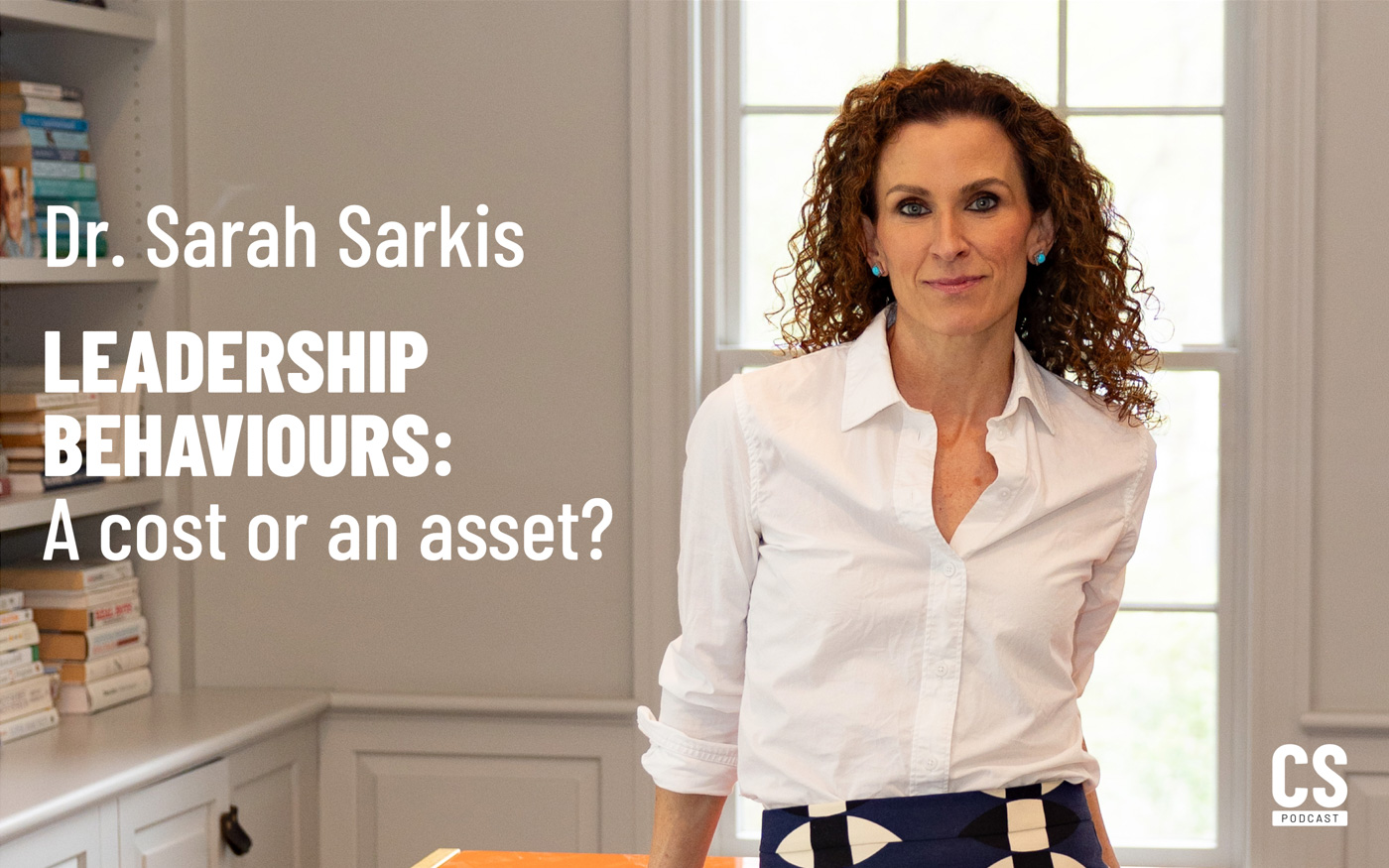In the latest Culture Sand Podcast episode, we had the pleasure of speaking with Sarah Sarkis, a licensed psychologist and certified Executive Leadership Coach. Sarah helps CEOs, athletes, and other high-performers navigate the psychological game of greatness.
We explored the critical role of #LeadershipBehaviours in shaping a culture that drives #BusinessOutcomes —and how they can become either a costly liability or a valuable asset to the organisation. Through first-hand experience, she knows that companies often don’t need costly #CultureTransformationPrograms if leaders are open and committed to transforming themselves.
Key Takeaways
Leadership and Culture Building
• In culture building, the buck stops with leaders.
• Know thyself first. Leader should not move to interpersonal skills until they’ve developed critical intrapersonal skills.
The benefits of Trust
• Trust is the bedrock of leadership effectiveness.
• A sense of fear, safety, control, surrender, resistance, willingness, and motivation are all deeply tied to the trust systems in our brain.
• All business outcomes are influenced by trust—or a lack of it.
Dealing with Resistance
• Resistance is a sign of a healthy organisational system and should be applauded (except when it is pathological).
• Leaders often ignore their own resistance while focusing on others’ resistance.
• It is our reaction to resistance where things get murky.
• Motivate people to change by giving them pockets of autonomy required to perform their work effectively and build their ability to assume larger responsibilities.
The Problem with Psychological Safety
• An unfortunate by-product of psychological safety is an overfocus on safety, with too little attention on dissent, friction, and conflict.
• Only high levels of intellectual friction and low levels of social friction drive companies forward.
• We must train ourselves to be knocked around and to become anti-fragile. Intellectual friction creates high-learning situations, and exposure to hardships builds resilience.
• Remember, exercise breaks you down muscularly before it has additive and reparative effects.
Time and Money
• Team dynamics change fast.
• You can transform how your team operates in 365 days.

About the author

ADVISOR, STRATEGY AND CULTURE
Tintti Sarola
Tintti Sarola is a strategist, transformation lead, and culture expert who believes the journey defines the outcome. With a background as a national team-level dressage rider and a track record of podium finishes up to the European Championship level, she brings the same intensity, focus, and commitment to business as she once brought to elite sport.
Her career spans law, tech, strategy, and transformation – from her early days in contract law and IPR to leading digital transformation, business development, and culture-powered change initiatives. Tintti has helped build successful start-ups, scale family-run businesses, and reshape how established organisations think, behave, and operate.
She specialises in helping leadership teams rewire how they work – aligning strategy with behaviour, shifting entrenched patterns, and building the human systems that make change stick. Sharp on strategy and fluent in human dynamics, Tintti is known for cutting through noise, connecting the dots, and helping companies move – fast and together.

